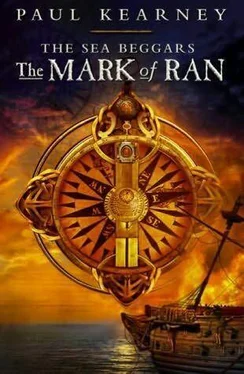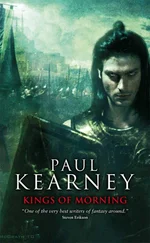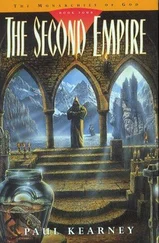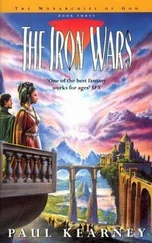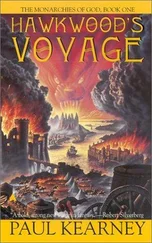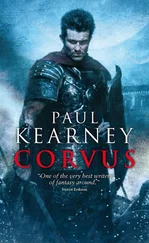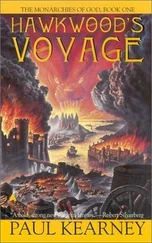Paul Kearney - The Mark of Ran
Здесь есть возможность читать онлайн «Paul Kearney - The Mark of Ran» весь текст электронной книги совершенно бесплатно (целиком полную версию без сокращений). В некоторых случаях можно слушать аудио, скачать через торрент в формате fb2 и присутствует краткое содержание. Жанр: Фэнтези, на английском языке. Описание произведения, (предисловие) а так же отзывы посетителей доступны на портале библиотеки ЛибКат.
- Название:The Mark of Ran
- Автор:
- Жанр:
- Год:неизвестен
- ISBN:нет данных
- Рейтинг книги:3 / 5. Голосов: 1
-
Избранное:Добавить в избранное
- Отзывы:
-
Ваша оценка:
- 60
- 1
- 2
- 3
- 4
- 5
The Mark of Ran: краткое содержание, описание и аннотация
Предлагаем к чтению аннотацию, описание, краткое содержание или предисловие (зависит от того, что написал сам автор книги «The Mark of Ran»). Если вы не нашли необходимую информацию о книге — напишите в комментариях, мы постараемся отыскать её.
The Mark of Ran — читать онлайн бесплатно полную книгу (весь текст) целиком
Ниже представлен текст книги, разбитый по страницам. Система сохранения места последней прочитанной страницы, позволяет с удобством читать онлайн бесплатно книгу «The Mark of Ran», без необходимости каждый раз заново искать на чём Вы остановились. Поставьте закладку, и сможете в любой момент перейти на страницу, на которой закончили чтение.
Интервал:
Закладка:
“Fear not, Gallico; I had an angel guarding me. This is-a man of the city-who saw fit to preserve me from some overfriendly footpads.”
The thing called Gallico lumbered forward, rocking on its fists like a boat chopping through swell. Bent though it was, its eyes were on a level with Rol’s. The light in them moderated somewhat, and Rol could see that there were golden flecks in the green, and black pupils which were not round, but lozenge-shaped. Surrounding the eyes was a massive frame of bone, the olive skin stretched tight across it, speckled with tiny golden hairs. The thing’s scalp was entirely bald, but it had grown a sparse goatee on its chin, and there were gold rings in its earlobes, wide enough to settle comfortably about a man’s thumb.
The creature raised its arm (thicker than Rol’s thigh) and set a hand on his shoulder. “Well, now,” it said, and its voice was low, like a bass lute. “What might this man of the city’s name be?”
“My name is Rol, Rol Cortishane.”
“Rol Cortishane, I am Peor Gallico.” The thing grinned horribly. “I believe I shall buy you a beer.”
The fight in the street was a story now, which found a worthy teller in Woodrin, once his comrades had stopped up his broken head and wiped the worst of the filth from his clothes. Rol drank the good beer that came foaming up from the cellar below in tall wooden pitchers. In Psellos’s Tower the Master and Rol and Rowen drank wine, and beer, suitably watered, was the preserve of the lower orders. It tasted nothing like this.
Gallico was watching him, one paw turning the pig on the spit as easily as if it were a chicken.
“Why, Woodrin, he’s naught but a boy. Are you sure it was three desperate thieves, not just some shirttailed urchin who caught you unawares?”
A gale of laughter met this sally. Woodrin was indignant. “I tell you it was three professionals, licensed and all. This boy took them on cool as you please, slew one and sent the others limping off with broken bones and busted noses.”
“He’s somewhat young to be a killer of men,” Gallico said, but there was no humor in his voice now. The green glitter of his eyes had sharpened. “But, yes, I see it. I see-” He stopped, and supped mightily out of a wooden tankard which seemed small as a thimble in his fist. “I need some air, and to stretch the kinks out of my backbone. You there, our heroic rescuer, lend me a hand out of the door.”
The talk and laughter fell, and Gallico looked round, smiled. “Why the long faces? I will not bite him. Come, Rol Cortishane. Bear with me.”
For the first time in his life, Rol was reluctant to leave a tavern. It was something to be a hero, or at least it was something to be accepted, and brought into the edges of a brotherhood. It was new, and he liked it.
The streets were black and full of running water, but the rain had stopped, and in this lightless corner of the city it was possible to look up and see the stars. Gallico straightened to his full height upon leaving the tavern, and Rol stepped back a pace, shocked by the sheer bulk of the creature. His hand went to Fleam’s hilt, naked training kicking in.
“Na, na,” Gallico said equably, “you need not fear me. We are all in your debt, and mariners do not forget. Keep your sword blade hid.” His nostrils widened as he sniffed the air. “A change is in the wind. It will have backed round to due east by morning. We will have it on the port beam.”
“You sail tomorrow?”
“We sail today, youngster, at dawn.”
“For Osmer.”
“Yes, sunny Osmer of the Singers. A twelve-day trip, if Ran is kind.”
“And where then?”
“Wherever our next cargo takes us, wherever the wind suffers us to go. Wind, cargo, and the thews of men, that is all a good ship needs, if it is to make a profit in this godless world of ours.”
There was a sudden painful yearning in Rol, a desire to take ship with this thing and this company whose fellowship had blossomed all around him back in the tavern. To tread the seaways of the world and leave behind the Tower of Michal Psellos, the unending training for an unknown purpose. Rowen. To be clean and free and at sea again.
“You were a sailor of sorts yourself once,” Gallico ventured.
“How do you know?”
“Something in the way you look up at the stars. Most men spare them a glance and no more, but you study them as if you knew them.”
“I have sailed by them, a little. Coastal sailing mostly.”
“So you know the sea.”
“I lived my life by it and on it once. Seems a long time ago now, but it is not so long.”
“Time goes slower when one is young. I have seen out a century, and am but half-grown.”
“What-forgive me-what are you?”
Gallico laughed, a great boom of good fellowship. “I am a relic, a piece of flotsam. Men call my kind halftrolls, but that is only a name. I have Old Blood in me.” Gallico stopped, considered. “As have you, my young friend.”
They stared at each other, Rol in dawning wonder, Gallico nodding.
“The Elder Race, of whom it is better not to speak. That ancient blood reveals itself in strange ways, odd forms. Demon or angel, it is in us all.”
“You know, then, how I was able to save your wages.”
“You preserved Woodrin, which means more to us. But yes, I am not so surprised. Men do not fear us for nothing.”
“Your shipmates do not seem to fear you.”
“That is because we are of the company, Seahawks one and all.”
“Seahawks?”
“The name of our brig, though to my mind she’s more of a pigeon. We are of a dozen different nations and races but our allegiance is to our ship, and each other.”
Once again that odd pain in Rol, the feeling that he was somehow missing something, lacking a quality Gallico and his shipmates possessed.
“I must go now,” he said.
“Are you truly a man of this city, Rol?”
“I’m not a man of anywhere.”
“Then you could do worse than seek a home on the sea. We’re short several hands. The company would welcome you, I know.”
Rol bowed his head, realizing how easy it would be. By this time tomorrow he would be at sea with men who seemed to esteem him. He would be clean.
“I cannot. I have things to do here in Ascari. Unfinished business.”
Gallico’s paw was surprisingly light on his shoulder. “I thought as much. But if the business becomes too bloody, make your way to Spokehaven on Osmer. Every year at the fall of the leaves, captains from all over the Wrywind put in for refitting there.”
Rol looked up, his face very young in the starlight. “The Seahawks also?”
“We also. Fare well, my friend.” And Gallico turned, bent, and re-entered the tavern at their backs, the door closing behind him on the lamplight, the laughter, the reek of beer and sweat of men.
Rol gathered his cloak about him, and began walking uphill, out of Eastside. Away from the sea.
Nine
THE FEAST OF HARVEST
Time passed, the seasons followed one another in their particular order. Summer came and went, and the snows on the Ellidon Hills receded, and then began to creep seaward again toward the flushed fires of the turning woods. The coastal fishermen brought in their wherries and beached them beyond the reach of Ran’s Rages, and in the markets of Ascari apples and hazelnuts and half a hundred other foodstuffs were mounded in colorful profusion on the stalls. Another harvest had been brought in, another season on the sea survived. Men gave thanks in drunken feasts up and down the city, where city-dwellers who barely knew what it was to plant a thing and watch it grow and harvest it sat down with fishermen and farmers and gave thanks for the largesse. It was a tradition as old as mankind itself.
Читать дальшеИнтервал:
Закладка:
Похожие книги на «The Mark of Ran»
Представляем Вашему вниманию похожие книги на «The Mark of Ran» списком для выбора. Мы отобрали схожую по названию и смыслу литературу в надежде предоставить читателям больше вариантов отыскать новые, интересные, ещё непрочитанные произведения.
Обсуждение, отзывы о книге «The Mark of Ran» и просто собственные мнения читателей. Оставьте ваши комментарии, напишите, что Вы думаете о произведении, его смысле или главных героях. Укажите что конкретно понравилось, а что нет, и почему Вы так считаете.
